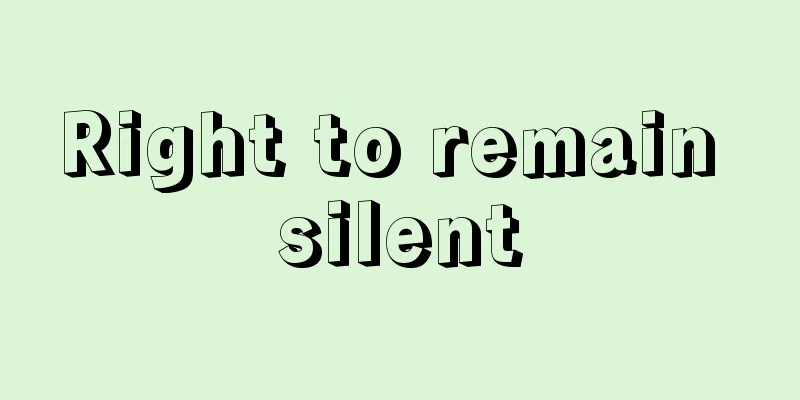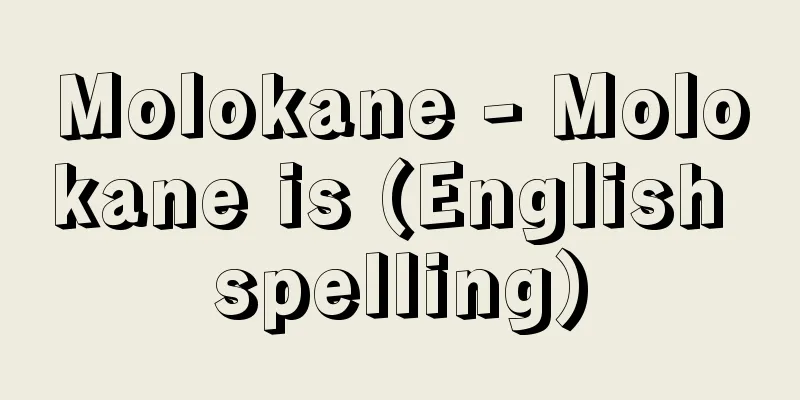Right to remain silent

|
It means that a suspect or defendant is not obligated to make a statement. The old Criminal Procedure Code stipulated the system of questioning a defendant, stating that "the defendant shall be informed of the case against him/her and asked whether there is anything he/she wishes to state in relation to that case," and this provision was applied mutatis mutandis to the questioning of a suspect, but now this right to remain silent has been strengthened. In other words, Article 38, paragraph 1 of the Constitution guarantees that no one shall be forced to make a statement that is unfavorable to himself/herself, and to realize this, Article 311, paragraph 1 of the Criminal Procedure Code stipulates that a defendant may remain silent throughout the entire case or refuse to answer individual questions. However, precedents state that in principle, the withholding of one's name is not permitted. When questioning a suspect, it is necessary to inform the suspect in advance that he/she does not have to make a statement against his/her will (Article 198, paragraph 2 of the Criminal Procedure Code). Even if a defendant exercises his right to remain silent and does not make a statement, it is not permissible to draw inferences unfavorable to the defendant with regard to the determination of the facts of the crime. It is also not permissible to consider the fact of remaining silent as a factor in determining the defendant's sentence that is unfavorable to the defendant, but it may be used as evidence that the defendant has no remorse. Even if a suspect exercises his right to remain silent, the exercise of the right to remain silent itself cannot be a reason for an extension of detention, but if the reasons for detention, such as having no fixed address or the risk of destroying evidence, still exist as a result of the exercise of the right to remain silent, detention may be extended for those reasons. When a suspect or defendant voluntarily makes a statement, that statement can be evidence that is either detrimental or beneficial to him or her (Article 197, Paragraph 1 of the Criminal Procedure Rules). The presiding judge must inform the suspect of this fact in addition to the right to remain silent at the opening proceedings (Article 291, Paragraph 3 of the Code of Criminal Procedure). The right to remain silent is recognized in order to respect the dignity of the individual. Therefore, it is not permitted to infringe on the suspect or defendant's freedom of decision-making and volitional activity through coercion, torture, promises of benefits that are not legally recognized, or fraudulent means. Confessions that are not voluntary or whose voluntariness is questionable are denied admissibility as evidence (Article 319, Paragraph 1 of the Code of Criminal Procedure). [Ichiro Uchida and Morikazu Taguchi] [Reference] |Source: Shogakukan Encyclopedia Nipponica About Encyclopedia Nipponica Information | Legend |
|
被疑者・被告人は供述する義務を負わないことをいう。旧刑事訴訟法は被告人尋問の制度を規定して、「被告人に対しては被告事件を告げ其(そ)の事件に付(つき)陳述すべきことありや否を問うべし」とし、この規定を被疑者の尋問に準用していたが、現在、この黙秘権は強化されている。すなわち、何人(なんぴと)も自己に不利益な供述を強要されないことが憲法第38条1項で保障され、これを実現するために刑事訴訟法第311条1項は、被告人は終始沈黙し、または個々の質問に対し供述を拒むことができる、とした。もっとも判例は、氏名の黙秘は原則として許されないとしている。被疑者の取調べに際しては、あらかじめ被疑者に対して、自己の意思に反して供述をする必要がない旨を告げることを要する(刑事訴訟法198条2項)。 被告人が黙秘権を行使して供述しなかったからといって、このことから、犯罪事実の認定について被告人に不利益な推測をすることは許されない。黙秘している事実を被告人に不利益な量刑資料として考慮することも許されないが、被告人が反省していないことの一資料とすることはありうる。被疑者が黙秘権を行使している場合にも、黙秘権の行使それ自体を勾留(こうりゅう)延長の理由とすることはできないが、黙秘権行使の結果として、住所不定、罪証隠滅のおそれなどの勾留理由がなお存続している場合には、それらの勾留理由から勾留延長がなされることもありうる。 被疑者・被告人が任意に供述する場合には、この供述は、自己に不利益な証拠にも、利益な証拠にもなりうる(刑事訴訟規則197条1項)。裁判長は冒頭手続で黙秘権のほかこの旨をも告げる必要がある(刑事訴訟法291条3項)。黙秘権が認められる理由は、個人の尊厳を尊重することにある。したがって、強制、拷問、法律上認められない利益の約束、偽計などにより被疑者・被告人の意思決定、意思活動の自由を侵害することは許されない。任意性のない自白または任意性に疑いのある自白の証拠能力は否定される(同法319条1項)。 [内田一郎・田口守一] [参照項目] |出典 小学館 日本大百科全書(ニッポニカ)日本大百科全書(ニッポニカ)について 情報 | 凡例 |
>>: Woodblock print - Mokuhanga (English spelling)
Recommend
Public goods
It is a good that is non-rivalous in consumption,...
Fiction (English spelling)
Treating something contrary to fact as if it were...
Orthostatic dysregulation
Autonomic nervous dysfunction caused by abnormali...
Kanotie - Kanotie
...After World War II, it was rarely worn by anyo...
Nuestra Senora (English spelling)
...) and is rarely called Maria. In the West, esp...
Harumi Murata
Year of death: Bunka 8.2.13 (1811.3.7) Year of bir...
shovegroat
…It is also called shovelboard. It is a game that...
Chǔ shí fàn qí (English spelling)
1296‐1370 A Chinese Zen master in the late Yuan an...
Ataka Fuyuyasu
1528-1564 A military commander and poet of the Se...
Sales book - Uricho
〘Noun〙 A general term for a ledger in which goods ...
Wang Chong
A thinker from the Later Han Dynasty in China. Hi...
Desmodium paniculatum (English spelling)
… [Hiroyoshi Ohashi]. … *Some of the terminology ...
Abudefduf septemfasciatus (English spelling) Abudefduf septemfasciatus
… [Makoto Shimizu]. . … *Some of the terminology ...
Root cutting - nekiri
This is a type of root pruning used for the produ...
《Earn and Save》 - Earn and Save
...The original work is the rakugo story "Sh...






![Mito [town] - Mito](/upload/images/67ccf3389da26.webp)


